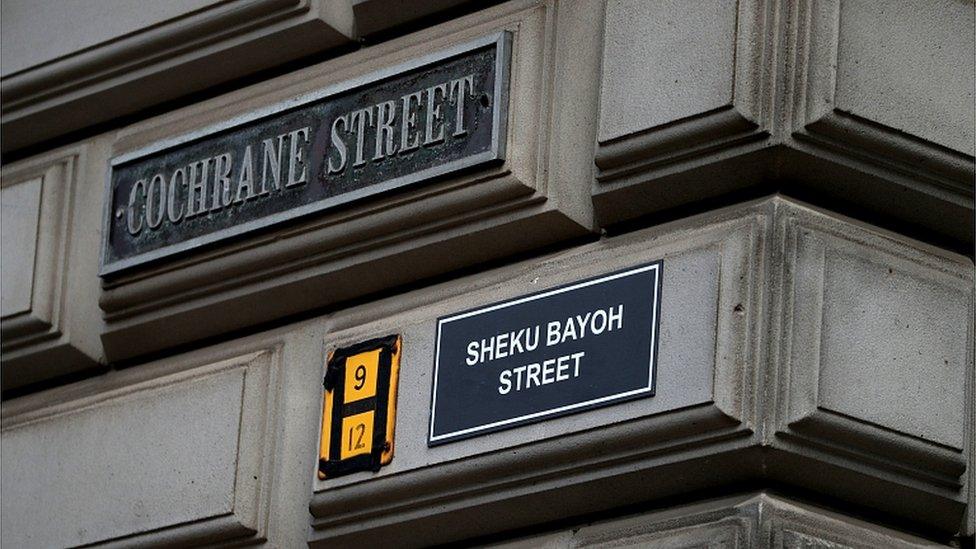Edinburgh to apologise for role in slave trade
- Published
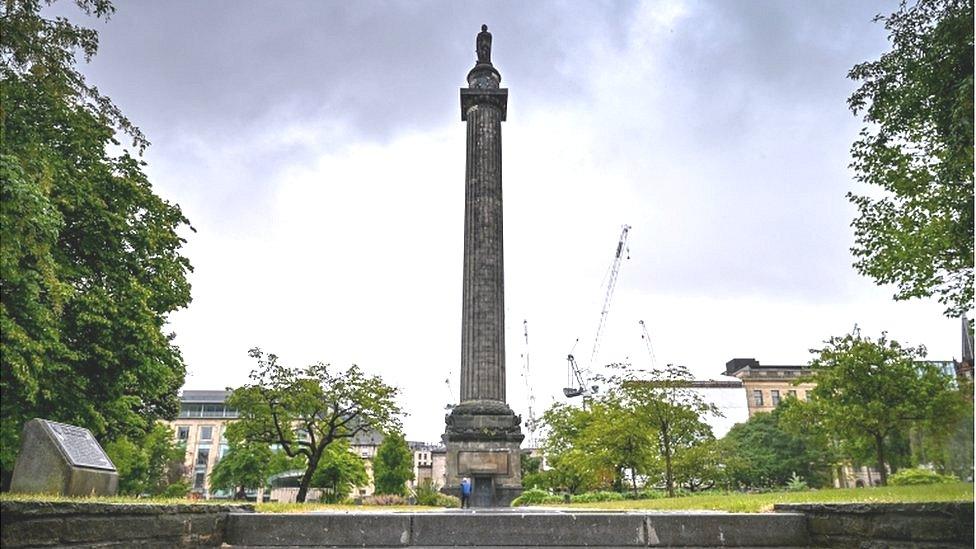
Edinburgh's Melville Monument in St Andrew Square is now dedicated to those enslaved because of Henry Dundas' actions
Edinburgh is to become the latest Scottish city to apologise for its role in the slave trade.
Councillors unanimously accepted all 10 recommendations from a review group looking at its colonial legacy.
Those included a public acknowledgement of the "city's past role in sustaining slavery and colonialism", and to issue an apology to people who suffered.
Statues, monuments and street names will be retained but "re-presented" to explain their historical significance.
Among those highlighted as problematic were the first minister's official residence in Charlotte Square, of which three historic owners "directly benefited from Atlantic slavery," the report stated.
India Street and Jamaica Street in the city's New Town were both "named as a celebration of empire" while St Andrew Square's controversial Melville Monument dedicated to Henry Dundas - which now has a plaque dedicated to those enslaved because of his actions - was also listed.
Edinburgh's city council will now set up a working group to progress the details of the recommendations, external.
It follows a similar move by Glasgow in March, while other UK cities such as Liverpool and London have previously issued formal apologies.
Council leader Cammy Day said the review, which cost the local authority £18,500, showed "commitment from the council to be progressive, open and honest about the history of Edinburgh".
He told BBC Scotland the city's Lord Provost, councillor Robert Aldridge, would be asked to make the apology on behalf of the city "as soon as possible".
Set up in 2020 in response to the Black Lives Matter movement, the review was chaired by Jamaican-born academic Sir Geoff Palmer, a human rights activist and campaigner on the issue.
"It is a wonderful achievement for all of us," Sir Geoff, professor emeritus at Heriot-Watt University, told BBC Scotland. "If we look even further, it is a wonderful achievement for the people of Edinburgh and Scotland.
"I have lived in Scotland since 1964 and what I find about the Scottish people is they will believe what they know.
"But once you tell them something they can check themselves, which seems obviously true to them, then the lie goes and the truth goes in its place. Henceforth they only accept the truth."
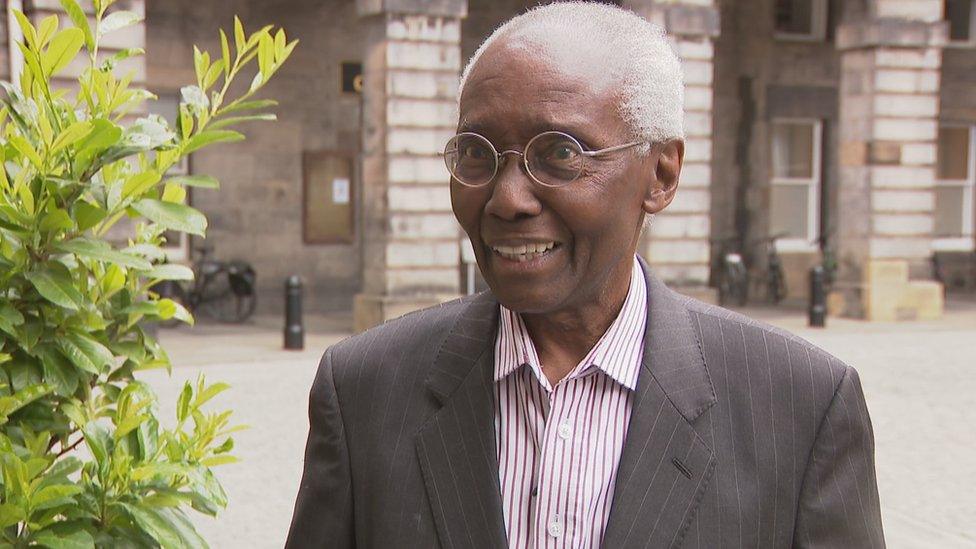
Sir Geoff Palmer, Scotland's first black professor, chaired the review group into Edinburgh's colonial past
The review group's report, running to nearly 150 pages, was based on a survey of about 4,000 people, and further research.
Prof Palmer said the council's decision to accept its recommendations was "very significant" and a civic apology was an important step.
"An apology doesn't buy bread but it gives another form of sustenance," he said. "It is about feeling that somebody has looked at something and recognised it was wrong. They are saying to you, the person offended, that they regret what has happened.
"Even though many people say 'we weren't there, it wasn't our doing', we all have responsibilities. We are responsible for what happened in the past, because the past has consequences. We can't change the past but we can change the consequences of racism.
"I feel this movement to try to redress the 300 years of enslaving people because of their colour will become universal."
George Floyd death
Sir Geoff said that most people who took part in the survey agreed that taking down statues and renaming streets was not the best way to help redress past iniquities.
"When you look at our history of slavery, if you remove the evidence, you remove the deed," he added.
"That is what taking down a statue or street name is. You are trying to hide that history and that is what we should not do."
Sir Geoff believes the death of George Floyd in May 2020 was the catalyst for a significant change in attitudes towards racism.
Mr Floyd, 46, died after being arrested by police in Minneapolis, Minnesota. Footage showed a white police officer, Derek Chauvin, kneeling on Mr Floyd's neck while he was pinned to the ground.
His death triggered a wave of protests across the United States.
"I think the world saw over nine minutes how a black person was murdered, for no other reason that somebody thought he was inferior and you could do it and could get away with it," Prof Palmer told BBC Radio's Good Morning Scotland programme.
"I think that was one of the most significant moments in the history of slavery."
- Published30 March 2022
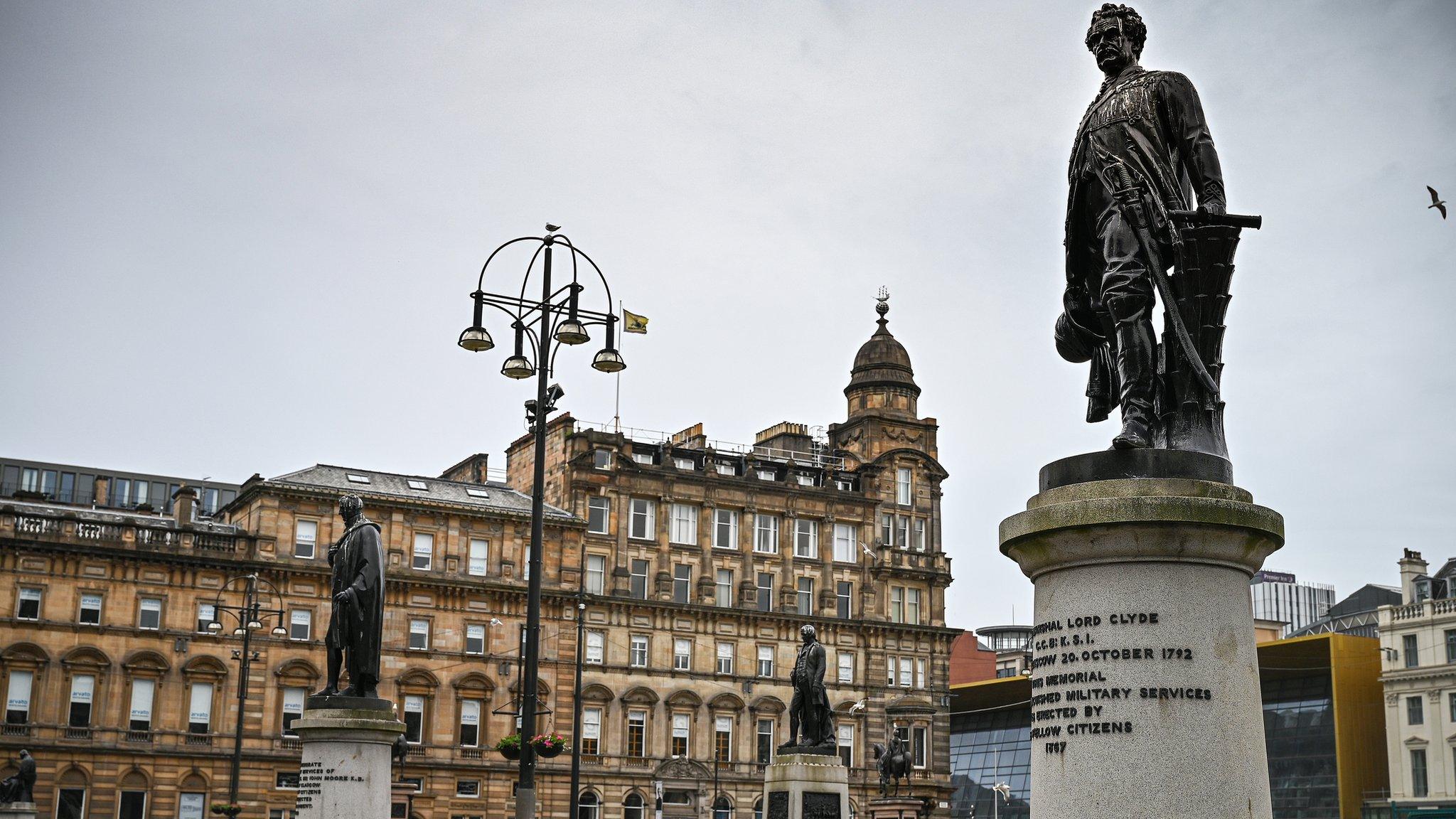
- Published11 June 2020
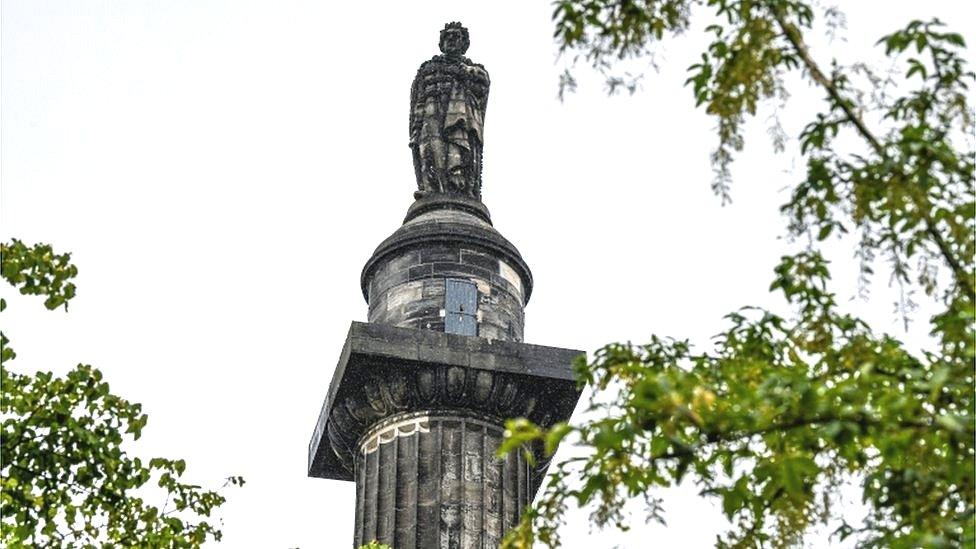
- Published9 June 2020
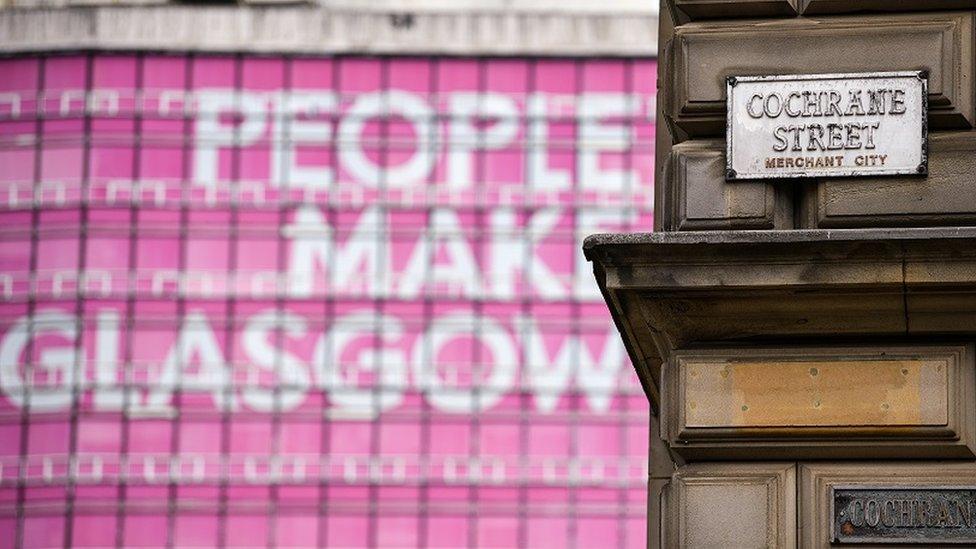
- Published8 June 2020
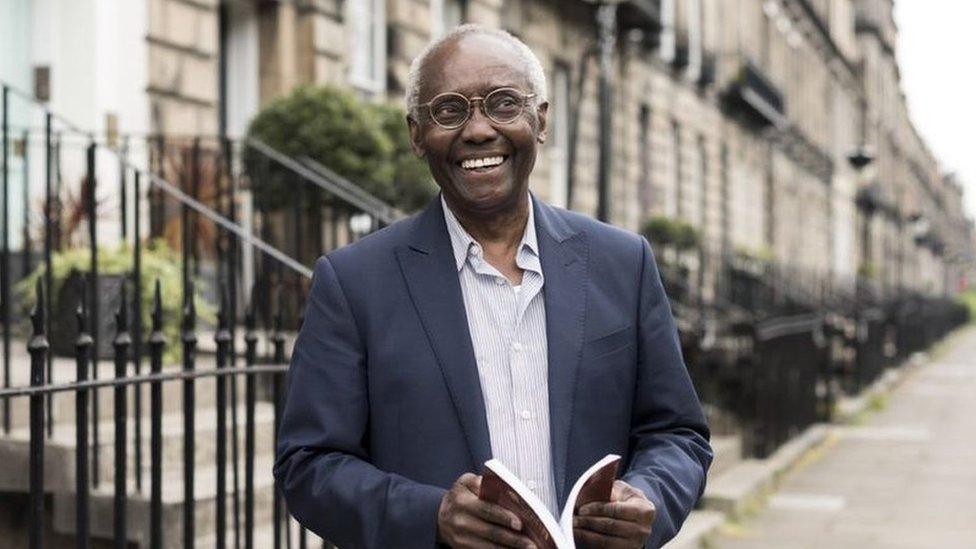
- Published6 June 2020
